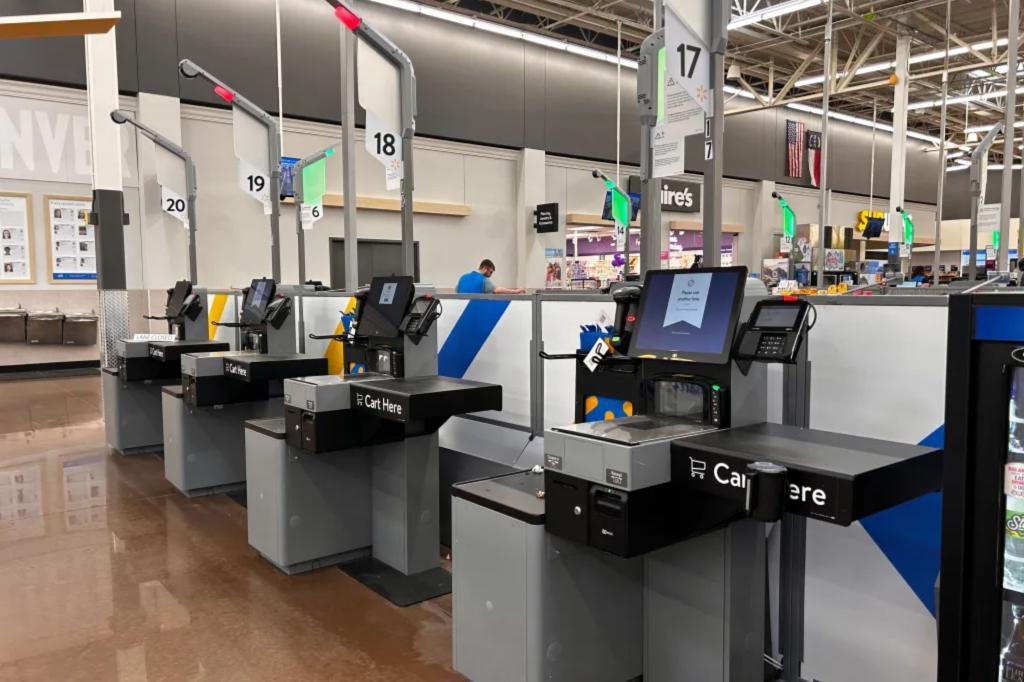The proposed Senate Bill 1446 in California aims to ban grocery stores and certain retailers from offering self-checkout options to customers in order to reduce theft. The bill would impose conditions on providing self-service checkout, such as limiting the number of stations that can be monitored by one employee and requiring the employee to be relieved of other duties. Additionally, grocers and retailers would need to evaluate the impact of using artificial intelligence or technology that could significantly affect the job functions of employees or eliminate their jobs.
Democratic state Sen. Lola Smallwood-Cuevas introduced the bill, citing that self-checkout machines cause 16 times more losses compared to checkouts with a cashier. She expressed concerns about the $10 billion in annual losses attributed to these checkout stands, as well as the safety of employees who may become easy targets for theft and violence while managing multiple tasks. Smallwood-Cuevas highlighted the challenges that lone workers face in trying to monitor their stores for retail theft while operating self-checkout stations.
In an effort to combat theft and improve employee safety, some retailers have already started reducing or eliminating self-checkout machines. Walmart announced plans to scale back on self-checkout machines at some stores, while Five Below has transitioned to associate-assisted checkout across its locations to reduce theft. CEO Joel Anderson mentioned this change during the company’s fourth-quarter earnings call, emphasizing the shift towards a different checkout method. These actions reflect a larger trend in the industry of reducing reliance on self-checkout machines for security and operational reasons.
The proposed ban on self-checkout machines in California raises concerns about the impact it could have on retailers and consumers. While the goal is to reduce theft and improve employee safety, the legislation may also lead to changes in store operations and customer convenience. Retailers will need to adapt to new regulations and find alternative solutions for managing checkout processes, potentially affecting their overall business strategies. Consumers may also experience differences in the shopping experience without the option of self-checkout, requiring them to adjust to associate-assisted checkout methods.
The debate surrounding the use of self-checkout machines and their impact on theft and employee safety continues to evolve in the retail industry. Lawmakers, retailers, and consumers are considering the benefits and drawbacks of self-service checkout options, with a focus on finding the right balance between convenience, security, and operational efficiency. As more states and companies explore alternatives to self-checkout, the future of retail technology and customer service will likely involve a combination of automated and human-assisted checkout processes to address various concerns related to theft, employee safety, and customer experience. The outcome of the proposed bill in California will provide valuable insights into the effectiveness of banning self-checkout machines in reducing theft and improving overall store operations.


